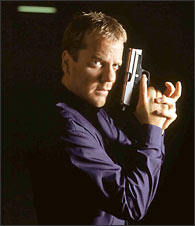Remembering Taro Tsujimoto
In honour of the upcoming NHL Entry Draft, we look back at one of the most tantalizing "what if" selections in the history of hockey.
The 1970s was the decade that brought a number of overseas imports to what had been seen as a "North American" league. Some, like Borje Salming, would eventually rise to the pinnacle of their sport and earn their place in hockey's pantheon of immortals, but it was an unknown prospect out of the Japan Ice Hockey League's Tokyo Katanas that was to shock the hockey world in 1974.
Legendary National Hockey League general manager Punch Imlach stunned the hockey world when he selected Taro Tsujimoto in the 11th round of the 1974 NHL Entry Draft. Hockey journalists initially hailed the selection, noting that the speedy centre, who went 183rd overall, would be a good fit with the organization. More importantly, the NHL had its first Japanese player.
While the diminutive Tsujimoto showed early promise in his first few months with the Sabres, surprising those who had expected little from this "novelty draft pick", a serious mandrus infection he picked up over Christmas left him bedridden for several weeks and he would ultimately end up missing half of his rookie season.
In honour of the upcoming NHL Entry Draft, we look back at one of the most tantalizing "what if" selections in the history of hockey.
The 1970s was the decade that brought a number of overseas imports to what had been seen as a "North American" league. Some, like Borje Salming, would eventually rise to the pinnacle of their sport and earn their place in hockey's pantheon of immortals, but it was an unknown prospect out of the Japan Ice Hockey League's Tokyo Katanas that was to shock the hockey world in 1974.
Legendary National Hockey League general manager Punch Imlach stunned the hockey world when he selected Taro Tsujimoto in the 11th round of the 1974 NHL Entry Draft. Hockey journalists initially hailed the selection, noting that the speedy centre, who went 183rd overall, would be a good fit with the organization. More importantly, the NHL had its first Japanese player.
While the diminutive Tsujimoto showed early promise in his first few months with the Sabres, surprising those who had expected little from this "novelty draft pick", a serious mandrus infection he picked up over Christmas left him bedridden for several weeks and he would ultimately end up missing half of his rookie season.
Never truly breaking out in a league of larger, tougher players than those he had faced in Japan, he would go on to have a credible career as a utility forward with several NHL organizations after being traded by the Sabres in his second year, including the Kansas City Scouts (76-79), the Cleveland Barons (79-80) and the Atlanta Flames for his final NHL Season (80-81). Throughout the 80s, Tsujimoto would bounce around the minor leagues, ultimately ending up back in his native land, where he has continued to play continuously since the early nineties as a semi-professional, and later, as an old timer.
It is said Tsujimoto never really recovered from the early setback of a severe illness in his rookie year. George Burdell, who played several seasons with the Tokyo native, had little to say to The Hockey News about his former teammate, characterizing him as "inscrutable" and an "enigmatic presence" who never quite got back on track after his bout with illness. Had he done so, some hockey historians opine he might have opened the floodgates to a new generation of Japanese player inspired by his trailblazing ways. We'll never know.



